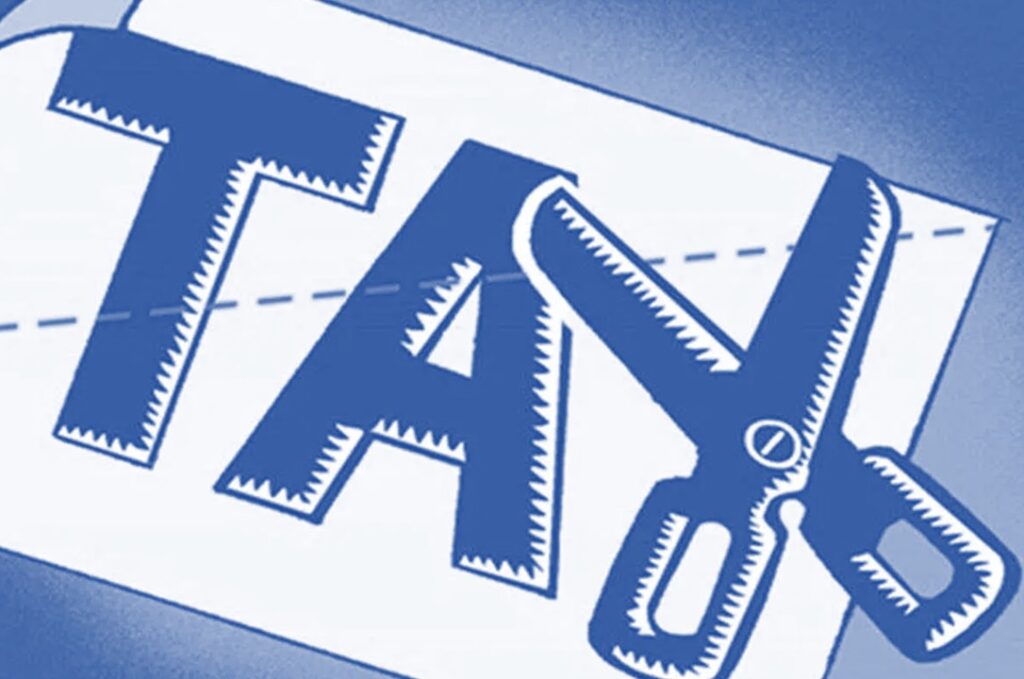
Benjamin Franklin once said, “In this world, nothing is certain except death and taxes.” He wasn’t wrong. Americans fully expect to pay taxes as much as they understand their time on earth is temporary. Still, many don’t think specifically about how taxes will affect their retirement savings. Much of retirement income is still taxable. Failing to anticipate and plan for taxes can profoundly impact the retirement nest egg and long-term financial security. Every saver should know about these three sneaky tax implications in retirement.
Social Security Taxes
Workers who have contributed to Social Security throughout their careers may still need to pay taxes on those benefits in retirement, depending on their income. The Internal Revenue Service (IRS) considers the following factors when determining combined income.
- Adjusted gross income (AGI)
- Nontaxable interest
- Half of the Social Security benefit
To illustrate, up to 50% of Social Security income is taxable for individuals with a combined income of $25,000 to $34,000 and couples filing jointly with a combined income between $32,000 and $44,000. Up to 85% of benefits are taxable for income exceeding those thresholds.
Waiting to collect Social Security benefits until later in retirement (between ages 67 and 70) when income may be lower can help retirees relieve the tax burden on their Social Security benefits. Converting traditional retirement accounts (IRAs) to Roth IRAs for tax-free withdrawals is another smart strategy. A financial advisor can devise additional tax-efficient approaches to manage the impact of taxes on Social Security benefits.
Required Minimum Distributions (RMDs)
The IRS mandates that retirees begin taking RMDs at age 73 from tax-deferred accounts, including 401(k)s, traditional IRAs, and 403(b)s. Distributions from these accounts are taxed as ordinary income, and if the balances in these accounts are large, the tax liability could be significant. The IRS bases RMD amounts on life expectancy and account balance, impacting tax brackets for some and potentially limiting what can qualify for future tax-deferred growth. Additionally, they could increase taxes on Social Security benefits.
The rub of RMDs is that retirees must withdraw and pay taxes on the RMD amount regardless of whether they need it all to cover their expenses. Roth IRA conversions and timed withdrawals can be advantageous in this situation. Because RMDs do not apply to Roth IRAs, the balances within them can continue to grow. There is an advantage of converting traditional IRA or 401(k) accounts to a Roth IRA before age 73 to reduce future RMDs. Additionally, beginning to withdraw from retirement accounts earlier can evenly distribute the taxable income and help retirees maintain a lower tax bracket.
Tax Ramifications of Inherited IRAs
Individuals who have inherited an IRA from someone other than their spouse must empty the account within 10 years of the original owner’s passing under the SECURE ACT. The implications of this rule can add insult to injury as large withdrawals can also considerably increase taxable income within that timeframe, especially for those already earning income. Recipients should consult a financial advisor to employ tax management strategies on withdrawals and prevent excessive tax penalties. Beneficiary exceptions to the 10-year rule include minor children and disabled or chronically ill individuals.
For those who are on their retirement and estate-planning journey, there are proactive measures to take that can alleviate the tax burden on future beneficiaries. Roth IRAs save the day once again. For individuals who intend to pass an IRA to a beneficiary who isn’t their spouse, Roth IRA conversions incur taxes upfront so heirs can withdraw tax-free later.
Proactive Tax Minimization Strategies
A financial advisor can assist clients in implementing tax strategies to mitigate their tax obligations and preserve wealth as part of a comprehensive retirement plan. The following approaches can relieve the tax burden for Social Security income, RMDs, and inherited IRA accounts for non-spouse beneficiaries:
- Roth IRA conversions: Withdrawals from Roth IRAs are tax-free in retirement. Converting traditional IRAs to Roth IRAs can lower future taxable income, avoid tax on future RMDs, and protect beneficiaries from tax on mandatory withdrawals from inherited accounts.
- Tactical timing of distributions: With the help of their financial advisor, savers can manage income thresholds with strategically timed distributions that limit benefit taxation.
- Tax-efficient withdrawals: By coordinating withdrawals from tax-deferred, tax-free, and taxable accounts, retirees can maintain their tax bracket and reduce income tax.
Don’t let taxes surprise you in retirement. Allow a financial advisor to assist you in navigating tax traps with careful planning to optimize your portfolio performance. Our experienced advisors at SHP Financial can help you develop a Retirement Road Map® with tax-planning strategies that work for you and your unique situation. The path to financial security starts with a good plan, and SHP Financial is here for you. Contact us today for a complimentary review of your finances.
Certain guides and content for publication were either co-authored or fully provided by third party marketing firms. SHP Financial utilizes third party marketing and public relation firms to assist in securing media appearances, for securing interviews, to provide suggested content for radio, for article placements, and other supporting services.
The content presented is for informational purposes only and is not intended to offer financial, tax, or legal advice, and should not be considered a solicitation for the purchase or sale of any security. Some of the informational content presented was prepared and provided by tMedia, LLC, while other content presented may be from outside sources that are believed to provide accurate information. Regardless of source, no representations or warranties as to the completeness or accuracy of any information presented are implied. tMedia, LLC is not affiliated with the Advisor, Advisor’s RIA, Broker-Dealer, or any state or SEC-registered investment advisory firm. Before making any decisions, you should consult a tax or legal professional to discuss your personal situation. Investment Advisory Services are offered through SHP Wealth Management LLC., an SEC-registered investment advisor. Insurance sales are offered through SHP Financial, LLC. These are separate entities. Some supervised persons of SHP Wealth Management, LLC, are independent licensed insurance agents of SHP Financial, LLC. No statements made shall constitute tax, legal, or accounting advice. You should consult your own legal or tax professional before investing. Both SHP Wealth Management, LLC. and SHP Financial, LLC. will offer clients advice and/or products from each entity. No client is under any obligation to purchase any insurance product.








